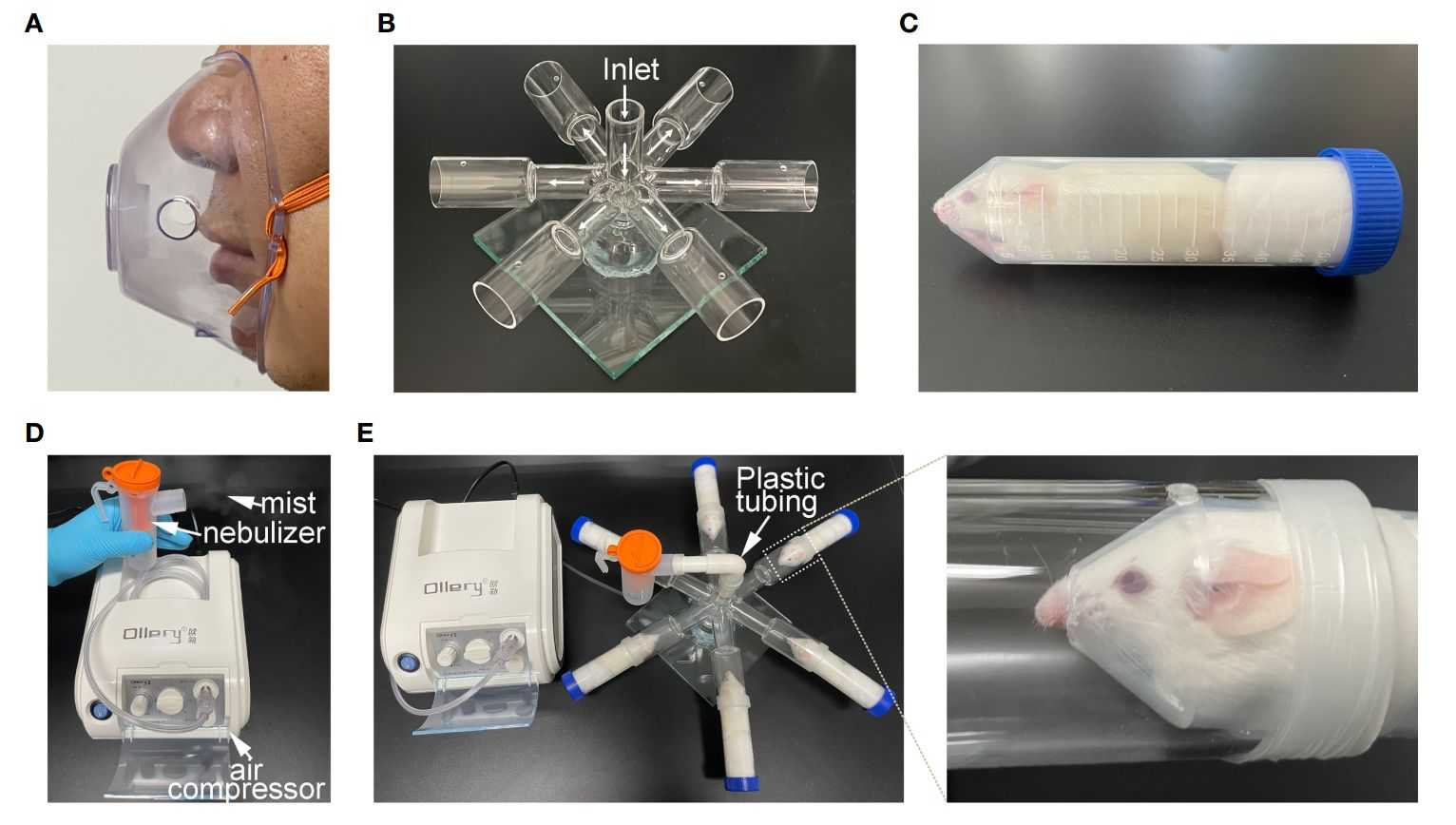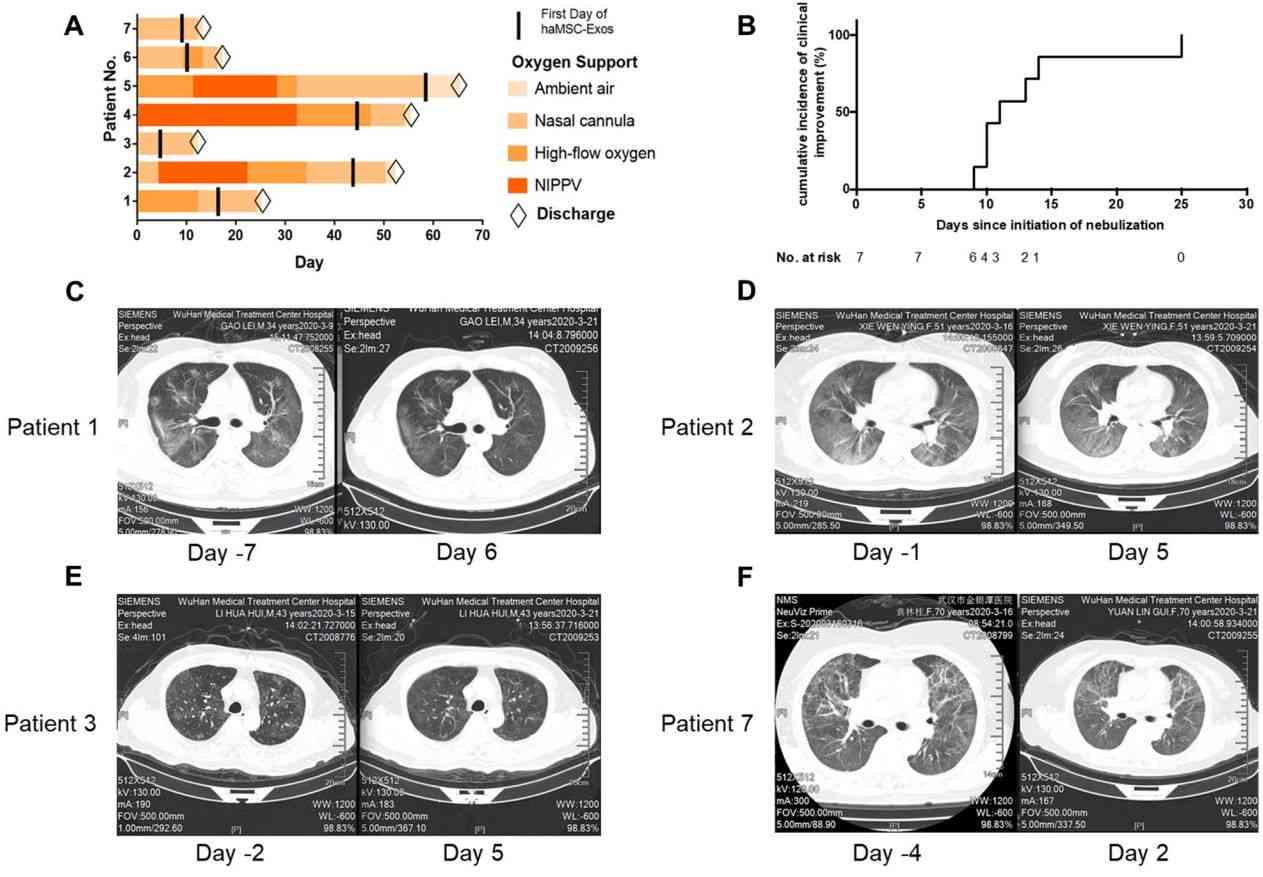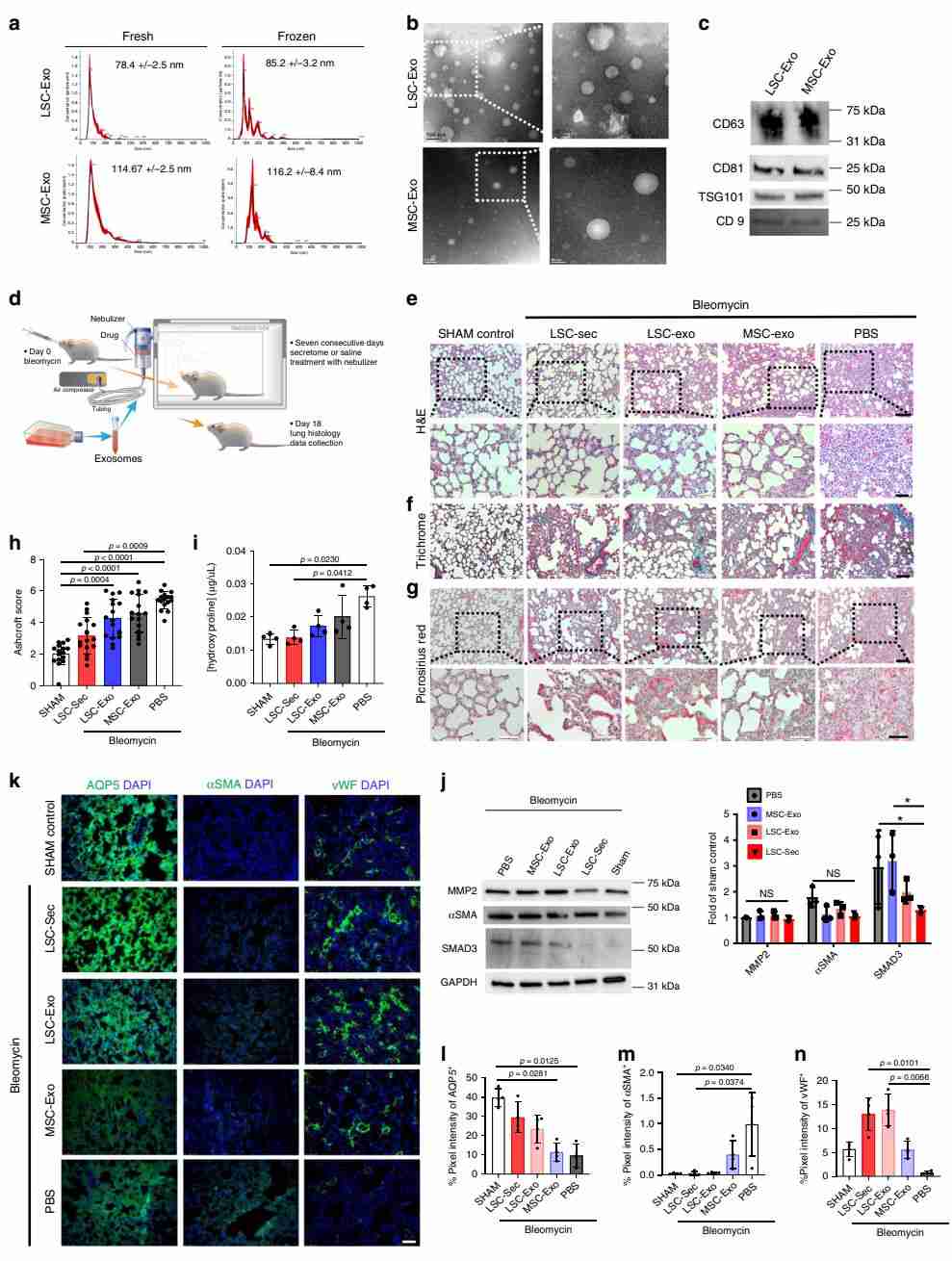Nebulized Inhalation Exosomes
Exosomes are small extracellular vesicles secreted by various cell types and have emerged as a promising therapeutic agent due to their ability to transport proteins, lipids, and nucleic acids. Among the various routes of administration, nebulized inhalation is a non-invasive and effective method for delivering exosomes directly to the respiratory system. Nebulized inhalation offers a unique and potentially advantageous route for delivering exosomes and is particularly suitable for the treatment of respiratory diseases.
 Figure 1. Construction of exosome atomization inhalation system for mice. (Xu X, et al., 2023)
Figure 1. Construction of exosome atomization inhalation system for mice. (Xu X, et al., 2023)
Therapeutic Areas of Nebulized Inhaled Exosomes
Nebulized inhalation administration of exosome administration has emerged as a promising therapeutic strategy for the treatment of various respiratory diseases. The unique anatomy and physiology of the lungs make it an ideal site for targeted exosome delivery for efficient uptake and distribution of these bioactive vesicles. Nebulized inhaled exosomes are expected to treat the following respiratory diseases.
Chronic Obstructive Pulmonary Disease (COPD) - Exosomes can deliver anti-inflammatory agents, promote tissue repair, and modulate the immune response in the lungs, potentially reducing inflammation and airway obstruction in COPD.
Asthma - Exosomes can target airway epithelial cells and immune cells, delivering anti-inflammatory mediators and reducing airway hyperresponsiveness and inflammation in asthma.
Pulmonary Fibrosis - Exosomes can promote tissue regeneration, potentially slowing or reversing the fibrotic progression of pulmonary fibrosis.
Lung Cancer - Exosomes can be engineered to deliver anti-cancer drugs directly to tumor cells in the lungs, potentially improving treatment efficacy and reducing side effects.
Cystic Fibrosis - Exosomes can deliver gene therapy vectors or other therapeutic agents to lung epithelial cells, potentially correcting genetic defects and improving lung function in cystic fibrosis.
Infectious Diseases - Exosomes can deliver antiviral or antimicrobial agents to the lungs, potentially targeting respiratory infections such as influenza and pneumonia.
Neurological Disorders - Exosomes can cross the blood-brain barrier via the olfactory nerve and deliver therapeutic agents to the brain, treating neurological disorders such as Alzheimer's disease and Parkinson's disease.
Research Advances
Research on nebulized exosome administration is advancing rapidly, and methods have been developed for isolating and characterizing exosomes suitable for inhalation. Preclinical studies have demonstrated the safety and efficacy of this method in animal models of respiratory disease. Clinical trials are currently underway.
Ongoing research is focused on the following.
- Optimizing Nebulization
Development of efficient nebulization techniques to ensure stability and integrity of exosomes during aerosolization.
Modify exosomes to enhance their stability, targeting, and delivery of therapeutic payloads.
- Combination Therapy
Explore the potential of combining nebulized exosomes with conventional drugs to maximize therapeutic efficacy.
Cases
- Nebulized Inhalation of Mesenchymal Stem Cell (MSC)-Derived Exosomes to Treat Lung Lesions
Researchers have administered exosomes derived from human allogeneic adipose mesenchymal stem cells in the form of nebulized inhalation to patients with severe neo-coronary arthritis, with preliminary findings showing significant improvement in lung damage in participants. Nebulized exosomes can reach the fine structures of the lungs, such as the fine bronchioles and alveoli, to deliver anti-inflammatory molecules directly to their targets and do not induce an acute allergic reaction or secondary allergic reaction while promoting the absorption of lung lesions. The nebulized exosomes are transported directly to the respiratory tract and alveolar sites through respiration to exert the effects and efficacy of tissue repair, immune balance, anti-inflammation and decongestion, detoxification, and phlegm elimination. The results of clinical studies suggest that nebulized inhaled MSC stem cell-derived exosomes can be used as a safe and feasible new approach for the treatment of neo-coronavirus infections.
 Figure 2. Nebulized inhalation of stem cell exosomes for the treatment of COVID-19. (Zhu YG, et al., 2022)
Figure 2. Nebulized inhalation of stem cell exosomes for the treatment of COVID-19. (Zhu YG, et al., 2022)
- Nebulized Inhalation of Pneumocyte-Derived Exosomes to Promote Lung Repair
Idiopathic pulmonary fibrosis (IPF) is a fatal and incurable interstitial lung disease. Currently, there are few effective treatments for IPF other than lung transplantation. In recent years, researchers have utilized lung spherocyte secretosomes (LSC-Sec) and exosomes (LSC-Exo) to treat different models of lung injury and fibrosis by inhalation. The analysis showed that LSC-Sec and LSC-Exo treatments attenuated and resolved bleomycin- and silica-induced fibrosis by reestablishing normal alveolar structure and reducing collagen accumulation and fibroblast proliferation. In addition, LSC-Sec and LSC-Exo showed better therapeutic efficacy than their MSC-derived counterparts in some aspects. The experimental results suggest that inhalation therapy with secretomes and exosomes exhibits therapeutic potential for lung regeneration in two experimental models of pulmonary fibrosis.
 Figure 3. Exosome inhalation therapy has therapeutic potential in rats with pulmonary fibrosis. (Dinh PC, et al., 2020)
Figure 3. Exosome inhalation therapy has therapeutic potential in rats with pulmonary fibrosis. (Dinh PC, et al., 2020)
Advantages of Nebulized Inhalation of Exosomes
Nebulized inhalation offers the following advantages over other exosome administration routes.
- Direct Delivery to the Lungs - Inhalation delivers exosomes directly to the respiratory tract, maximizing their concentration in the target area and improving therapeutic efficacy.
- Non-Invasive Delivery - Inhalation is a non-invasive, painless method that improves patient compliance and reduces the risk of complications associated with intravenous or oral delivery.
- Improved Bioavailability - Exosomes delivered by inhalation bypass hepatic first-pass metabolism, potentially improving their bioavailability and therapeutic efficacy.
- Targeted Delivery Potential - Exosomes can be designed to target specific cell types in the lungs, thereby enhancing therapeutic efficacy and reducing off-target effects.
Today We Offer
At the forefront of exosome inhalation technology, Creative Biostructure offers a comprehensive range of exosome services and products to help clients explore the therapeutic potential of nebulized inhaled exosomes. Our team of experts is passionate about innovation, providing cutting-edge exosome isolation and characterization technologies, as well as tailored formulation development to ensure optimal stability and inhalation administration. We are committed to supporting clients in realizing the full potential of this breakthrough technology to develop new diagnostic tools and therapeutic strategies for a wide range of respiratory and other diseases. If you are interested in our services and products, please feel free to contact us.
References
- Xu X, et al. A non-invasive strategy for suppressing asthmatic airway inflammation and remodeling: Inhalation of nebulized hypoxic hUCMSC-derived extracellular vesicles. Front Immunol. 2023. 14: 1150971.
- Zhu YG, et al. Nebulized exosomes derived from allogenic adipose tissue mesenchymal stromal cells in patients with severe COVID-19: a pilot study. Stem Cell Res Ther. 2022. 13(1): 220.
- Dinh PC, et al. Inhalation of lung spheroid cell secretome and exosomes promotes lung repair in pulmonary fibrosis. Nat Commun. 2020. 11(1): 1064.